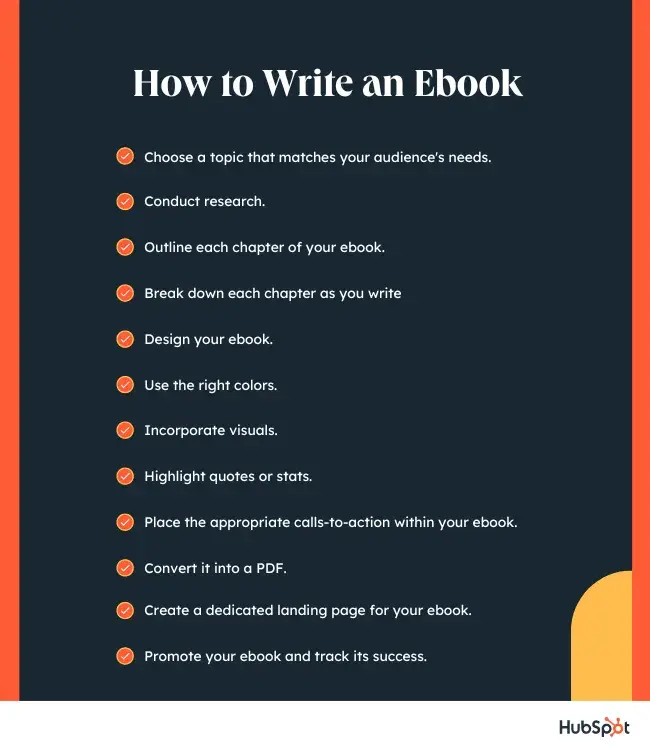Is an Odf an E-Book for Citation Purposes: A Comprehensive Guide
No, an ODF is not the same as an e-book for citation. ODF stands for Open Document Format, a file type for text documents.
Understanding the difference between ODF and e-books is crucial, especially for citation purposes. E-books are digital versions of books, often in formats like EPUB or PDF. They are published with proper citations and references. ODF files, on the other hand, are typically used for editable documents created with software like LibreOffice.
They are not standardized for publishing. Knowing these distinctions helps in correctly citing sources and maintaining academic integrity. This blog will explore the key differences between ODFs and e-books and guide you on how to use each for proper citations.

Credit: blog.hubspot.com
Odf Format
ODF stands for Open Document Format. It’s an open standard for documents. ODF is widely used in office software. It supports text, spreadsheets, charts, and presentations. The format is highly versatile and free to use. Many prefer it for its compatibility with different software. ODF files are easy to edit and share. They can be opened on various platforms. This makes them accessible for many users.
ODF is commonly used in many areas. It’s popular in education for creating reports. Businesses use it for internal documents. Government agencies often choose ODF for public records. The format is also used in research for storing data. ODF files are seen in personal use for notes and letters. Its flexibility makes it suitable for many tasks. Many prefer ODF for its open-source nature. This ensures it remains free and accessible.
E-book Format
E-books are digital books. They can be read on devices like tablets or computers. E-books often have interactive features. These can include hyperlinks and multimedia elements. These features make e-books engaging and easy to navigate.
| Type | Description |
|---|---|
| Portable Document Format, widely used and accepted. | |
| EPUB | Open format, adaptable to different screen sizes. |
| MOBI | Format used by Amazon Kindle devices. |
Citation Standards
APA Style uses author-date format. Cite the author and year. For example: (Smith, 2020). Use italics for book titles. Page numbers are needed for direct quotes. For example: (Smith, 2020, p. 15).
MLA Style uses author-page format. Cite the author and page number. For example: (Smith 15). Use quotation marks for article titles. Italics are for book titles. No commas between author and page number.
Chicago Style has two systems. Notes-Bibliography and Author-Date. Notes-Bibliography uses footnotes. Cite with full details in footnotes. For example: 1. John Smith, Book Title (City: Publisher, Year), page. Author-Date is similar to APA. Cite with author and year. For example: (Smith 2020).

Credit: www.amazon.com
Citing Odf Files
ODF files can be cited like other documents. They must follow basic rules. Always include the author’s name. Also add the title of the document. Mention the date of publication. Include the file format in the citation. This helps readers find the source easily. For example:
| Format | Example |
|---|---|
| Author’s Name | John Doe |
| Title | Understanding ODF Files |
| Date | 2023 |
| File Format | ODF |
These elements create a clear citation. This helps others trust your work. Make sure to check for accuracy. Small mistakes can mislead readers. Proper citations build trust in your writing.
Citing E-books
When citing e-books, follow some basic rules. Always include the author’s name, publication year, and title of the e-book. Use italics for the title. Next, mention the format. It helps to identify the source. For example, write “Kindle edition” or “PDF”. Always include the URL or DOI if available.
Here are some examples:
- Author, A. A. (Year). Title of e-book. Publisher. URL
- Author, B. B. (Year). Title of e-book. (Kindle edition). Publisher. URL
Proper citations are crucial. They give credit to original authors. They also help readers find the sources. Always double-check your citations. Ensure accuracy and completeness.

Credit: blog.hubspot.com
Comparing Odf And E-books
ODF stands for Open Document Format. E-books are digital versions of books. ODF files can be text documents, spreadsheets, or presentations. E-books usually come in formats like EPUB or PDF. ODF is often used for editing and sharing text documents. E-books are meant for reading on digital devices. ODF is more flexible for different types of content. E-books focus on providing a book-like reading experience.
ODF is good for creating and editing content. E-books are perfect for reading and citing books. ODF is often used in academic and professional settings. E-books are popular among readers and researchers. ODF files can be easily edited and updated. E-books maintain a fixed format, making them reliable for citation. Both have their unique uses and benefits.
Frequently Asked Questions
What Is An Odf File?
An ODF file is an Open Document Format file. It is used for text documents.
Can You Cite An Odf File?
Yes, you can cite an ODF file. Use proper citation style guidelines.
Is An Odf File Considered An E-book?
No, an ODF file is not an e-book. It is a text document format.
How To Convert Odf To E-book Format?
You can convert ODF to e-book format using conversion tools. For example, Calibre.
Conclusion
An ODF can be a reliable choice for citation purposes. It offers flexibility and accessibility. E-books, on the other hand, provide convenience and widespread usage. Both formats have their benefits. Choose the one that suits your needs best. Always check guidelines before citing.
Remember, accuracy is key in citations. Happy referencing!






